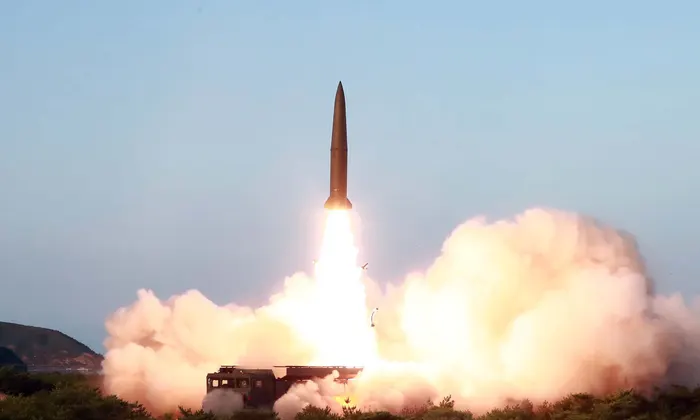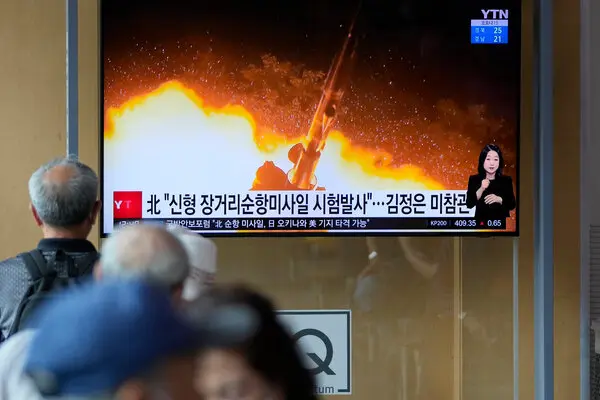North Korea fired two short-range ballistic missiles into the East Sea on Saturday, South Korea’s military said, in its fourth such provocation in less than a week.
The Joint Chiefs of Staff (JCS) said it detected the launches from the Sunan area in Pyongyang between 6:45 a.m. and 7:03 a.m. and that the missiles flew some 350 kilometers at apogees of around 30 km at top speeds of Mach 6.
The launches came just hours before South Korea was set to hold an event marking the Armed Forces Day with its key military assets on display. The previous day, the South, the United States and Japan staged an anti-submarine warfare exercise in the East Sea.
“The recent series of North Korea’s ballistic missiles is an act of significant provocation that undermines peace not only on the Korean Peninsula, but also in the international community, and a clear breach of U.N. Security Council resolutions,” the JCS said in a text message sent to reporters.

It added, “Our military will maintain a firm readiness posture while tracking and monitoring related movements in close cooperation with the U.S. in preparation against additional provocations.”
JCS Chairman Gen. Kim Seung-kyum and Gen. Paul LaCamera, the commander of the South Korea-U.S. Combined Forces Command, held virtual consultations over the launches.
In a statement, the U.S. Indo-Pacific Command said the North’s move “highlights the destabilizing impact of the DPRK’s unlawful WMD and ballistic missile programs,” It reaffirmed Washington’s “ironclad” commitment to the defense of its Northeast Asian allies. The DPRK is the acronym for the North’s official name, the Democratic People’s Republic of Korea, and WMD stands for weapon of mass destruction.
The latest launches followed earlier provocations on Sunday, Wednesday and Thursday.
On Thursday, U.S. Vice President Kamala Harris made a daylong visit to South Korea, during which she met with President Yoon Suk-yeol and toured the Demilitarized Zone (DMZ) that divides Korea. While here, she said Washington would do “everything” in our power to ensure its security commitment to the Asian ally.









